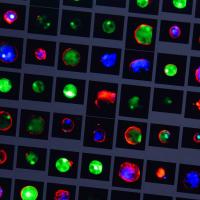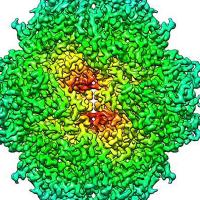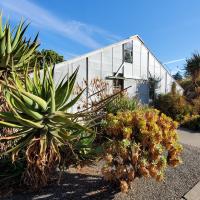The Office of Research Core Facilities Program promotes a world-class research infrastructure at UC Davis that enables scientific excellence, technology development and outstanding innovations for researchers on campus and the scientific community. The College of Biological Sciences is home to many of these facilities, which collaborate across campus to enhance the aim and support for institutional research.

Light Microscopy Imaging Facility
This Department of Molecular and Cellular Biology facility utilizes advanced fluorescence microscopy resources which specialize in live cell imaging and super-resolution methods.

Biological Electron Microscopy Facility
This Department of Molecular and Cellular Biology facility encompasses expertise and imaging systems across the spatial resolution scale, from imaging macromolecular assemblies, subcellular organelles and whole-preserved multicellular tissues.

Research Greenhouses
The Department of Plant Biology houses the Core Greenhouse Complex and the Orchard Park Facility, which support 24 total greenhouses.

Bioinformatics Core
This Genome Center facility provides expertise and infrastructure for the acquisition, curation, analysis and distribution of large complex biological datasets, with an emphasis on sequence data.

DNA Technologies and Expression Analysis Core
This Genome Center facility provides Illumina high-throughput sequencing, PacBio long read sequencing, as well as Fludigm EP1 and Illumina BeadArray high throughput SNP genotyping. It also offers many sequencing-associated services such as library preparation and QC, as well as consultations on project design.

Metabolomics Core
This Genome Center facility provides untargeted and metabolite target analyses for a wide range of biochemical pathways, covering over 1,200 identified metabolites with validated analytical methods and known mass spectra and retention times.

Proteomics Core
This Genome Center facility provides state-of-the-art analytical proteomic services with particular emphasis on label-free quantitative proteomic profiling, the analysis of macromolecular complexes, the post-translational modification of their constituents and standard protein identification from complex protein mixtures.

TILLING Core
This Genome Center facility provides mutants for rice, Arabidopsis thaliana, and tomato as well as other species on request. TILLING (Targeting Induced Local Lesions IN Genomes) is a reverse genetic technique that uses chemical mutagenesis to create libraries of mutagenized individuals that are subjected to high-throughput sequencing for discovery of mutations.

